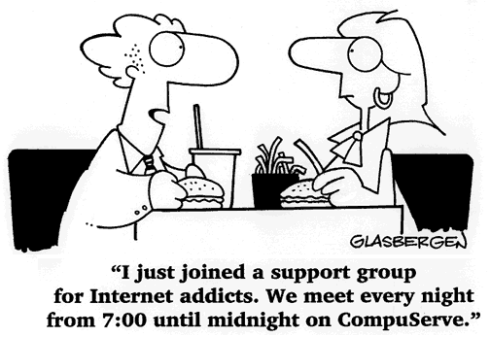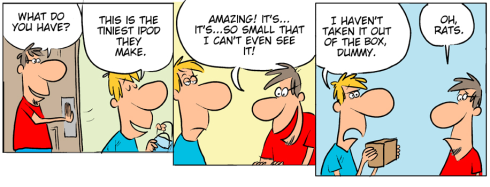Are you a compulsive technology user? Are you constantly checking your email, your text messages or your Facebook newsfeed? If so, you are not alone.
In a recent study by Dr. Larry Rosen (2012), he used a standard measure that assessed disorder amoung Internet users and found that those who showed more compulsive personality traits:
- spent more time online each day,
- communicated more by all modalities (instant messaging, texting, social networking,
- played more video games,
- listened to more music,
- spent more time checking for phone messages and Facebook updates,
- was more prone to multitasking than other people.
People seem to use their technologies compulsively in 2 different ways:
1. because they either love their device, crave surfing the Internet and love their software and phone apps so much that they cannot get enough of them; or 2. because they become so worried about missing out on some important news that they cannot keep themselves away from the Internet or their phones.
There are other possible factors influencing the development of addiction too. Refer to post 3. For example, Dr. Young (1998) noted that negative life events – such as job dissatisfaction, medical illness, unemployment and academic instability – could trigger addiction. The rewarding qualities of the Internet and the anonymity of being online could help these people avoid their suffering and dull their pain.
In the modern society, a lot of us are addicted to the Internet without even knowing it. We cannot live without internet.
We’re on the internet every single day. The Internet has already taken over our lives. It has made us into – emailing, Googling, gossip blogging, Youtube watching, eBay shopping, Facebook posting freaks!
In a certain way, this may not be a bad thing. In fact, compared to 20 years ago, our lives now have been greatly improved with the advancement of technology and the Internet. Task can be done quicker. Information is instantly at our fingertips. Like for example, we are more up to date by the minute with news available online compared to print media. Essential info can be quickly searched instead of spending time in the library. Even if we are continents apart, the Internet can help us to connect with our loved ones through online media like Facebook, Skype or instant messaging.. When we are too busy with work, online grocery shopping and delivery courier are readily available to aid us in taking care of these chores.
However, too much of a good thing can lead to an obsession. Some of us spend too much time in the high-tech world and not enough time dealing with real life. What I mean is that we spend less time enjoying the outdoors, interacting with people & nature and bonding with our family members. The Internet has taken away part of our real social life!
Avoiding Internet addiction does not mean getting rid of our technology. Most assuredly the solution is about balance and moderation.
Several practical approaches to dealing with problematic technology use:
- moderate our personal technology input
- being offline at the times when we are normally online
- set alarms to remind us when it is time to log off and get to work (or school)
- set a schedule for being online and offline
- avoid problematic applications such as online chatting
- examine what activities are lost due to excessive Internet use
- try support groups and family therapy if necessary
Do not worry. It is not fatal and we are not doomed to spend time in a mental institution or a rehab centre.
Ultimately, the best way to assuage the symptoms of media-induced is to “unplug” for awhile. Get outside in nature, spend some face-to-face time with others and take a break from technology.
Just remember, when you surf online remind yourself of the bad and good of Internet and do not neglect daily lives when your life is hooked online. ![]()
Resources:
- Rosen, L.D., Carrier, L. M., Cheever, N. A., Rab, S., Arikan, M., & Whaling, K. iDisorder: The Relationship between Media Use and Signs and Symptoms of Psychiatric Disorders.
- Young, K. S. (1998) Caught in the net: How to recognize the signs of Internet addiction – and a winning strategy for recovery
- Internet Addiction Resource
- Internet Addiction Counselling Centre









